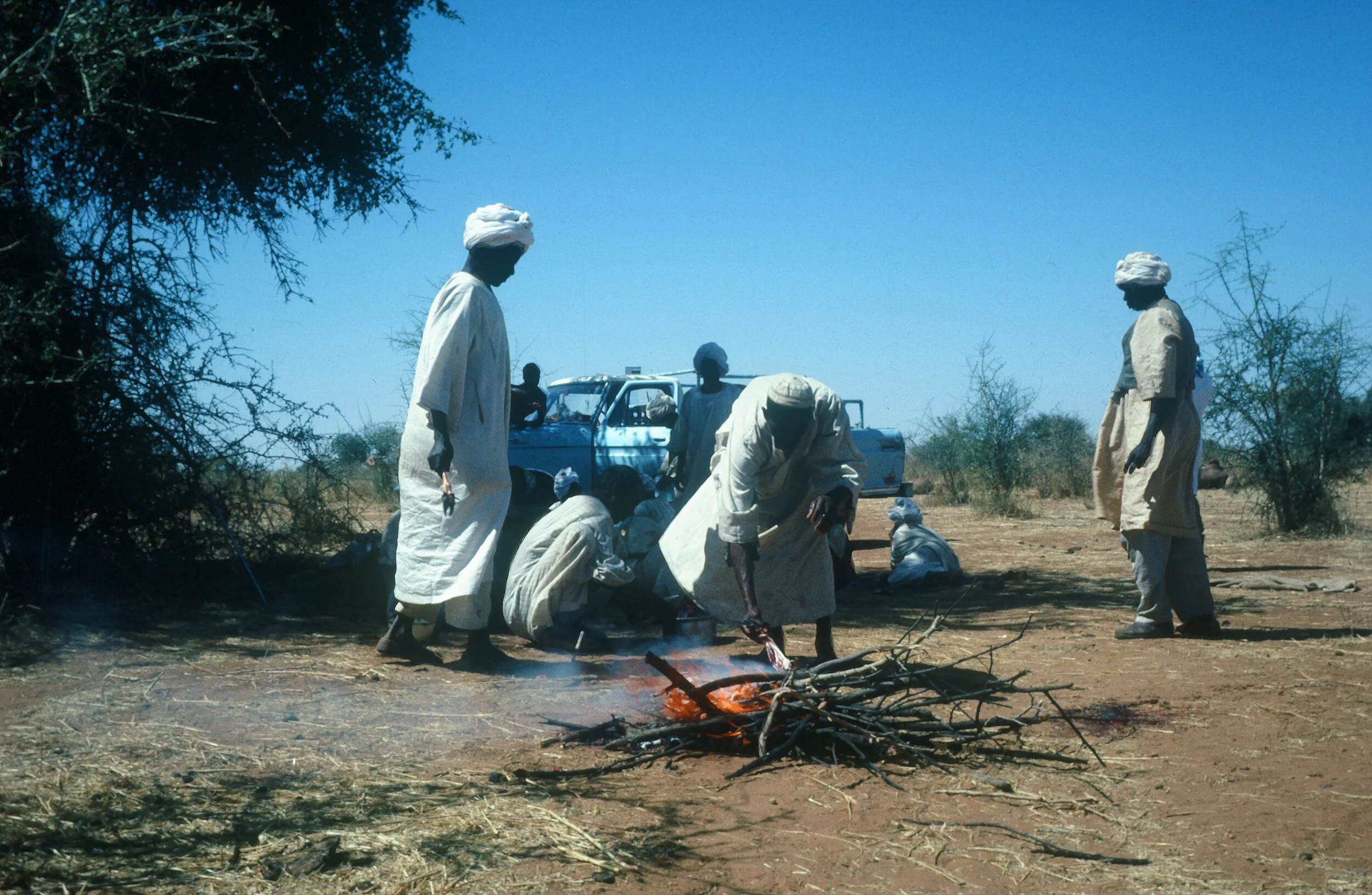Going to the oasis was like a birth process, the desert road seemed like a long fallopian tube, and the intense green of cultivation hemmed in by dunes the size of huge slices of an orange tossed from above dazzled my eyes. In Dakhlah I went from the towns of Mut, Death, to Al-Jadida, The New One, then to the hamlet of Gharghur, from the verb, To Gargle. Ate greasy pigeon, bread pudding, fresh olives, dates. The father of my Cairo friend is a Haj, meaning he’s been to Mecca, kept pointing at me then looking to the sky and saying, You Illuminate the House. Evenings we sat in the Mafraj, smoked hash, listened to Radio Cairo on a rustic set, talked more, a few fell asleep, and at midnight took a stroll under the full moon.
-Letter Home, November 22, 1978
I’d met the Haj’s son in a Cairo coffeehouse and I became a regular customer there just to chat with him. When I learned he was from the oasis I asked him to write me a letter of introduction. I remember finally getting to the family house in Gharghur on the back of a donkey cart from the bus stop in Al-Jadida. When the Haj saw me getting off in front of the door, he played very cool. Even before reading the letter he asked, How did you get here so fast?










